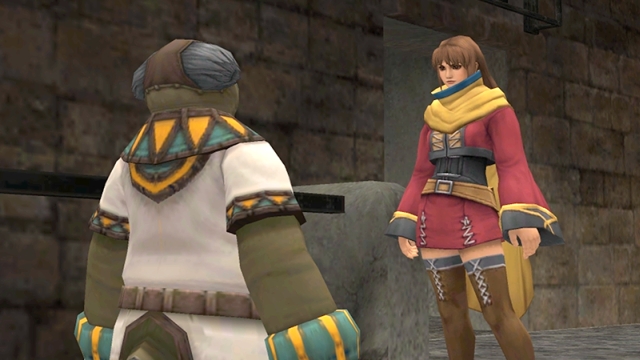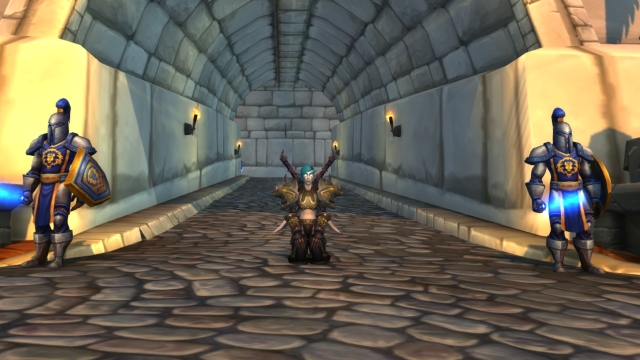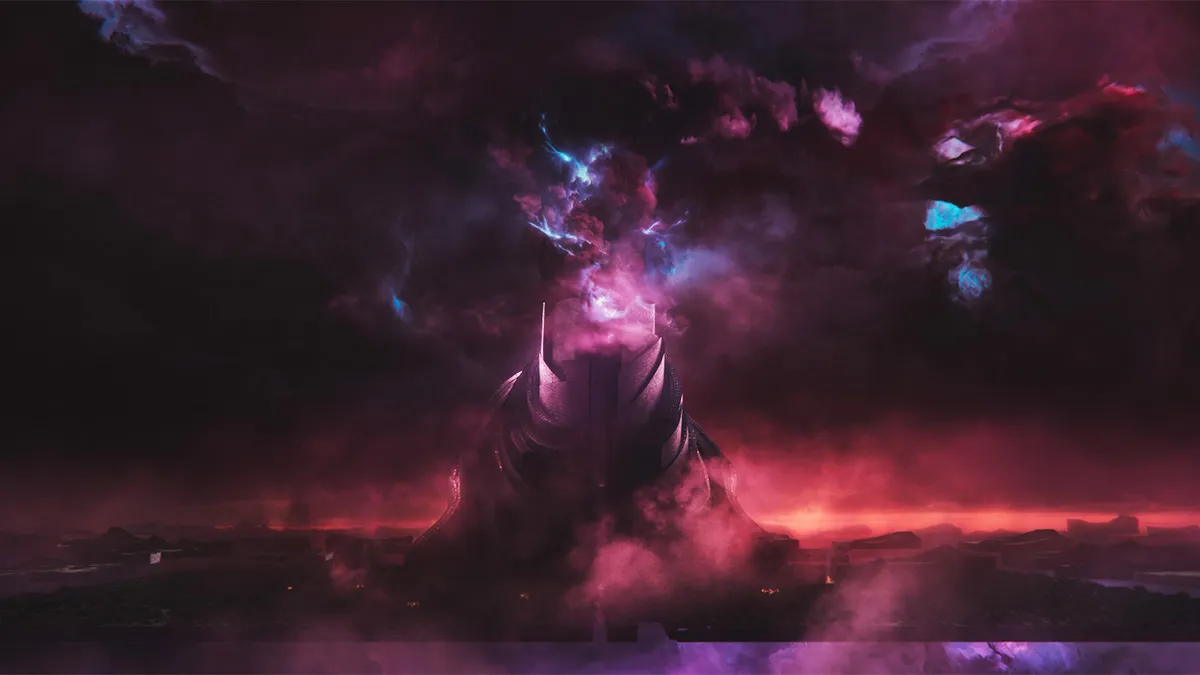You have Steven in your guild, and he’s great. You know that he’s probably the best person to play his class that you’ve ever met. You know that he’s friendly and helpful, and he’s more than happy to pass over rewards if they’ll help someone else out who’s newer to the game. You know that he’s polite and fun to be around. You know that he could push your guild to progression they never would have dreamed possible.
You know all of this because Steven’s in another guild on his main, and while the alt in your guild might be capable of all of the same thing, you are Steven’s second choice. Because Steven likes you, but not as much as he likes the guild he’s already a part of.
MMOs increasingly make a point out of allowing players to be part of more than a single guild, while games with almost entirely external structure like team-based FPS titles and MOBAs have never much cared if you have multiple affiliations. For members, this can be a very good thing, allowing you to belong to several different groups with very different focuses rather than forcing you into a very narrow range of interactions. But for leaders, this can be problematic in the extreme. How do you handle members who aren’t just yours, and how do you keep loyalty when you’re not a multi-stop port of call but just there for one purpose?
The game vs. the player
It’s important to note that there are two kinds of situations at play here – a setup where the game itself allows for multiple diverse affiliations, and a setup where the player has multiple affiliations. The two are not exactly the same.
In the former setup, everyone can — and quite possibly does — have more than one group. This is actually normal in this particular game. That means that everyone is in the same boat, and you need to remember that no one is necessarily going to use your guild as a sole port of call. In the latter setup, however, you’re dealing with a player who is specifically making extra characters or holding multiple affiliations to be a part of your group in addition to whatever else they’re doing.
Games without explicit support for groups one way or the other are a bit of a special case. My own personal observation has been in games like MOBAs where team affiliation is more likely to be a result of want than need, you might imagine that people would be less loyal, but the result is quite the opposite. If the game doesn’t care about organization, it’s best to do some research about the community. In lieu of more information, I err on the side of assuming that divided loyalties are rarer.

When everyone has multiple groups
In some ways, as an officer, having an environment where everyone can have multiple ports of call is a good thing, because it allows you to specialize. Your roleplaying guild doesn’t need to also have people devoted to running content and crafting; there are other places people can go for that. You’re just concerned with roleplaying.
That’s the good news. The bad news is that when everyone can have multiple affiliations, everyone can have multiple affiliations. So you can be more specialized, but you’re competing with several other guilds which are themselves highly specialized. You have to stand out from the pack, and your specialization won’t do it alone.
Group cohesion becomes extremely important in this situation, but also a bit harder to enforce. As a result, you don’t want to focus on recruiting as heavily as you want to invest in the group you already have. Referral-based recruiting makes more sense in this environment, for example; you tend to wind up with people who have a stake in growing the community rather than just forming cliques.
It also means that you will want to have more guilds that you work closely with, often because even officers can have multiple affiliations. When the leader of a farming-centric guild is also in your social guild, you know that her guild is probably staffed by good people. In other words, it becomes more like a loosely affiliated network, similar to a larger guild in ways but also not forcing people to cut ties or all smash together in the same area.
In these situations, the big thing you need to look out for is sharing members with guilds that wind up being incompatible with your own. It might make sense for Melissa to be in two different dungeon content guilds if they tend to operate at two different times, but you need to make sure that she’s still serving as a member and a participant within your guild. Which is what it all comes down to, especially when…

Players are outliers
A lot of players in MMORPGs have one character, or have multiple characters who all wind up in the same place. They find a guild and stick with it. But some players like to spread around a little bit more, and those players can be… problematic.
The key issue in this situation is that you want the individual player as a dedicated member of your guild. You like this person, they passed all of the application tests… but they’re just bringing a secondary character into your guild, or joining your guild as a secondary thing, or so on. This is fine, in and of itself, but it also means that the player in question needs to behave themselves like any other guild member. You have rules on attendance? Alt or no, this player is still subject to them, and if they’re not devoting actual time to your guild, they need to not be a part of it any longer.
This is, of course, hard to say to anyone. The person in question was allowed into the guild for a reason, you want them there, and you would prefer not to lose them. But at the same time, it’s important to establish for both this player and other players that guild membership isn’t something that just happens in eternity. You might like the player, but they still have to pull their weight.
Assuming you know ahead of time that the player in question is bringing in an alt rather than a main character, it’s advisable to talk with the player first and explain your expectations while also asking what they can commit to. The player’s alt might only be around on non-raid nights, but they really want to be with this guild during those non-raid nights. Knowing that ahead of time is useful.
Similarly, you want a player bringing in an alt to be welcomed for their presence, not as a stand-in for the player’s main. If you’re in a casual raid guild and one of your members has a “main” raid character who is much better geared, you don’t ask that player to bring that character and make your life easier. They signed up to be a part of the casual group, let them be casual.
There are always wrinkles involved when you’re dealing with players who might view your guild as more of a secondary venture, but a lot of it comes down to just making sure that everyone has the right expectations ahead of time. If you don’t mind not being the first group on the list, you can wind up with more diverse players who can also offer unique perspectives. Just know what you’re doing and walk in with both eyes open.






